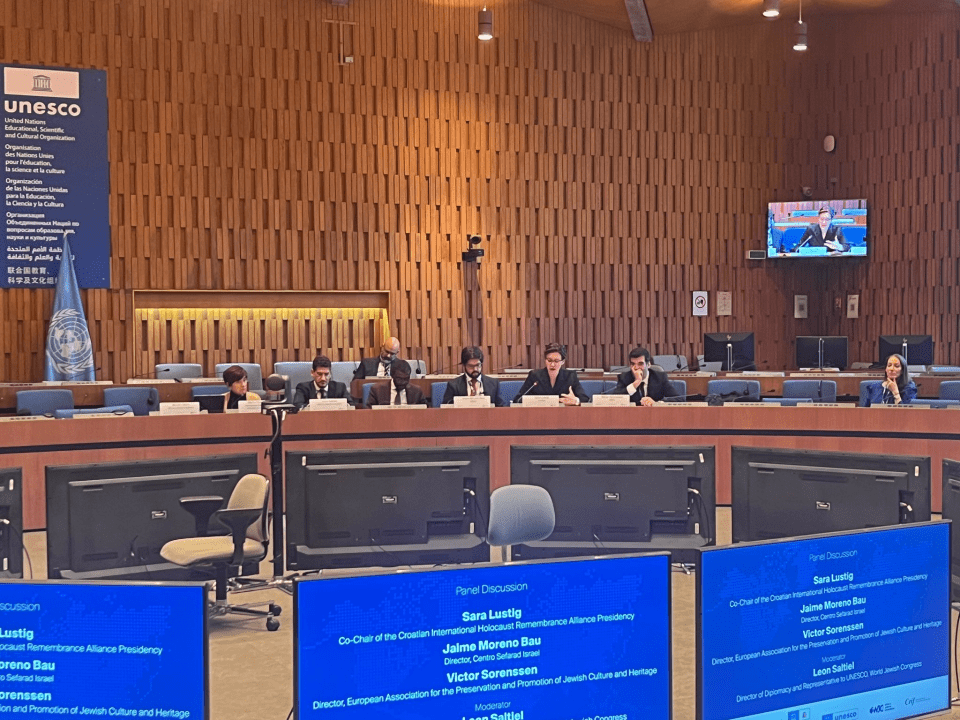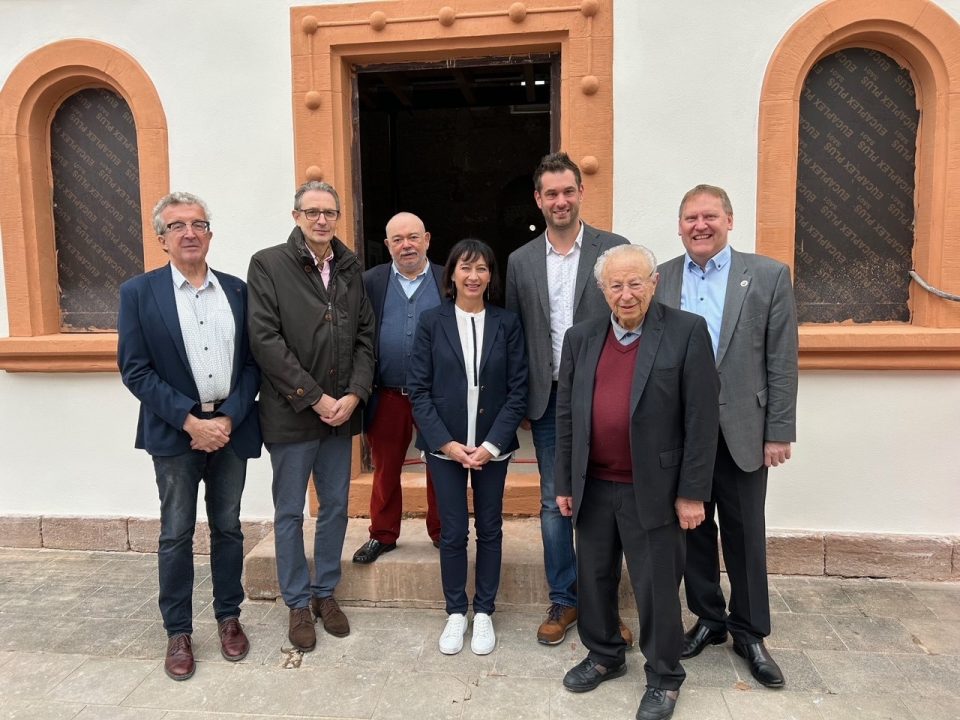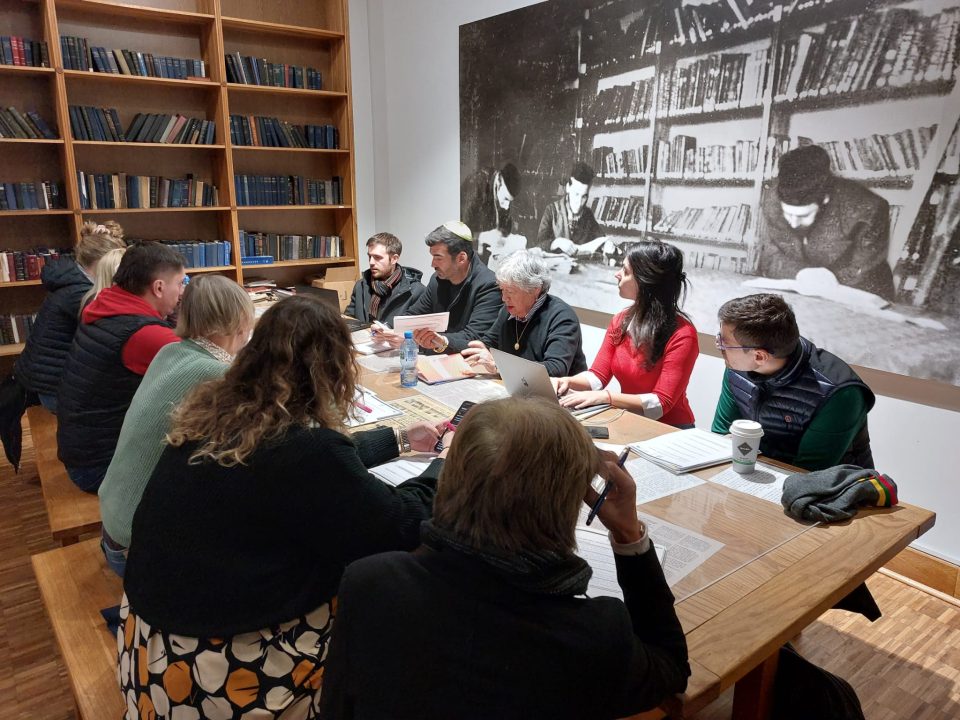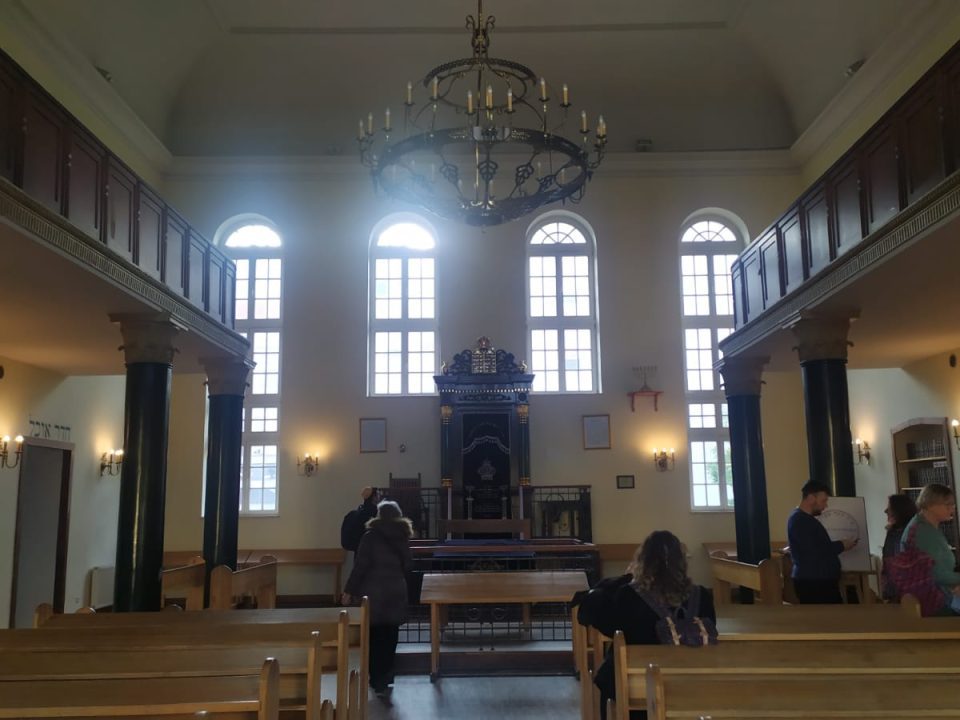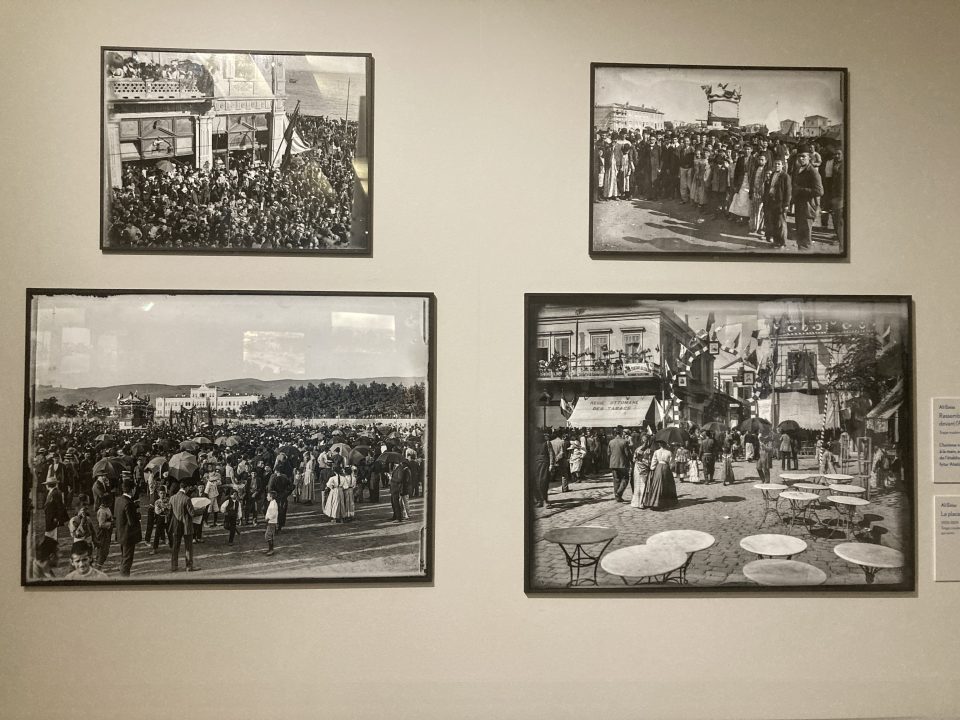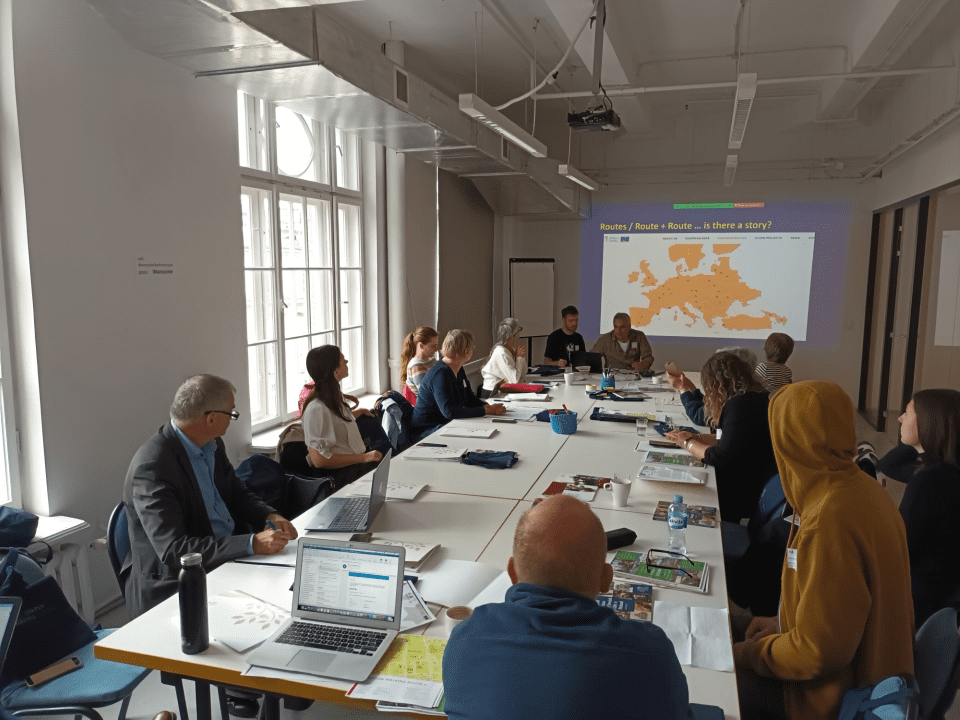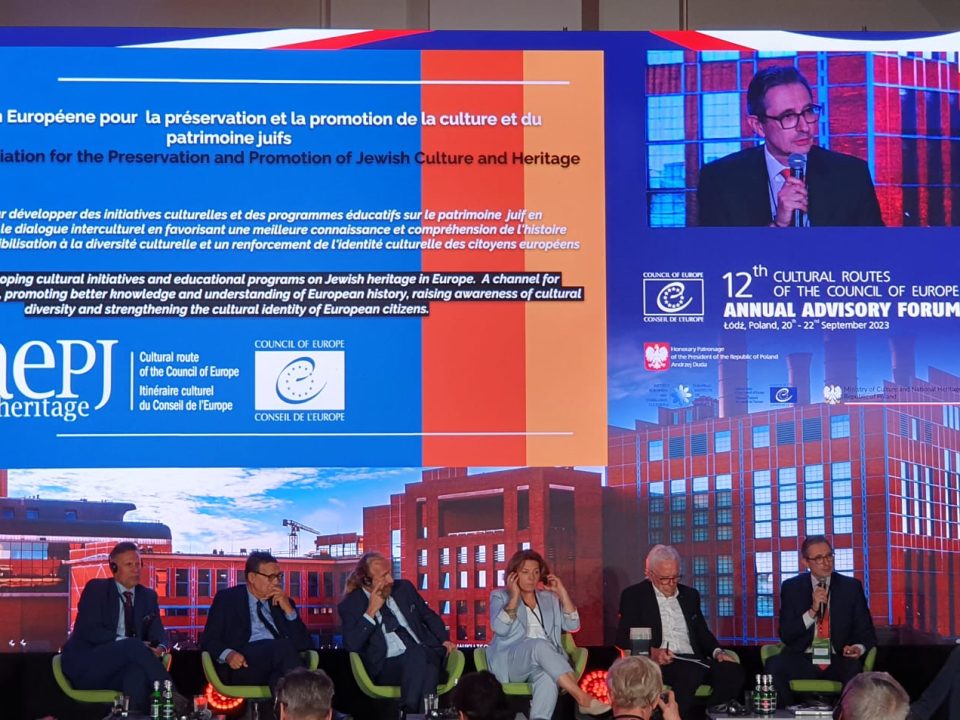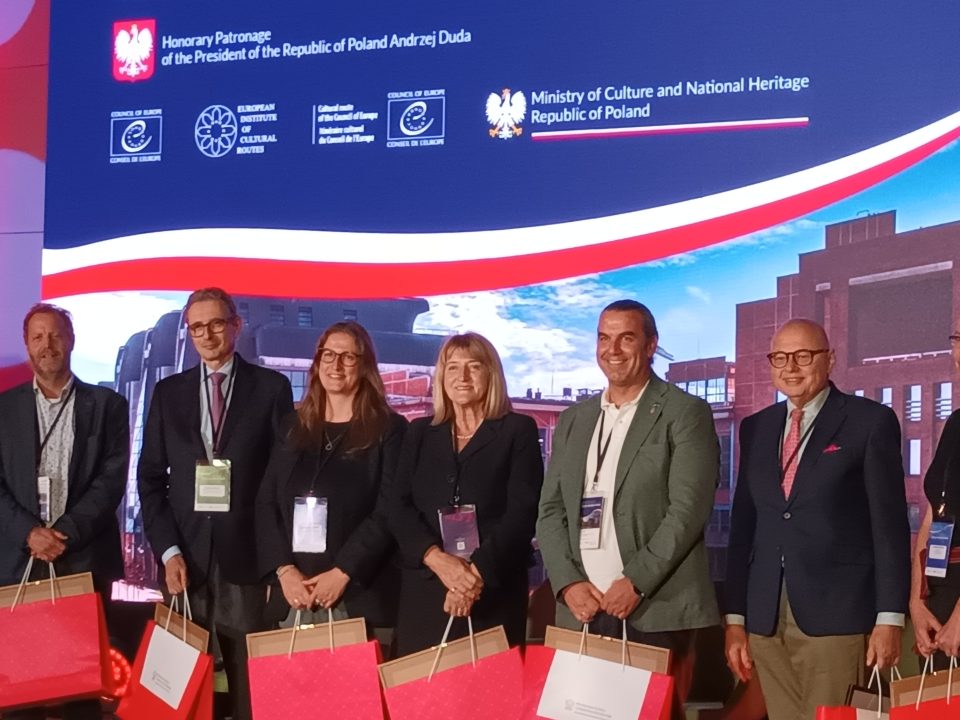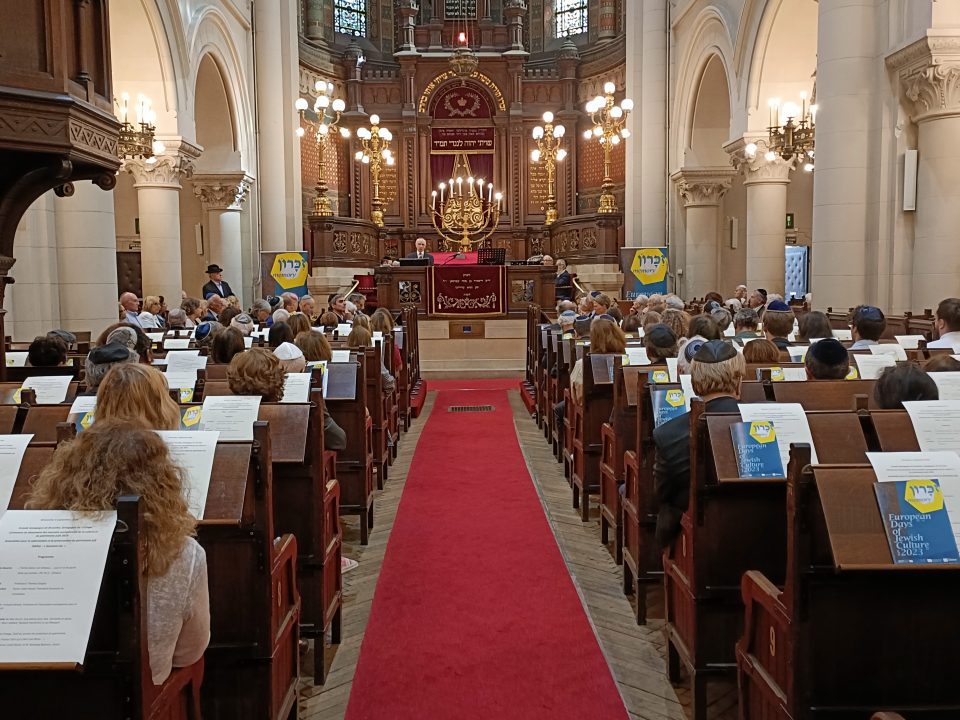- Filter by
- Categories
- Tags
- Authors
- Show all
- All
- AEPJ News
- Andalusia
- Austria
- Azerbaijan
- Balti
- Belarus
- Bendery
- Braunschweig
- Celle
- Chisinau
- EDJC old editions
- EDJC22
- EDJC23
- EDJC24
- France
- Georgia
- Germany
- Girona
- Hannover
- Hildesheim
- Italy
- Izmir
- Lithuania
- Medieval Route
- Moldova
- National Route
- Orhei
- Padua
- Palaces, Villas and Country Houses
- Poland
- Regional Route
- Rhineland
- Rybnitsa
- Soroca
- Spain
- Thematic Route
- Tiraspol
- Turkey
- Ukraina
- Uncategorized
On 24 October, a panel on the promotion and preservation of Jewish heritage was held at UNESCO headquarters in Paris. This panel was organized by the the Delegation of Spain to UNESCO, UNESCO, the World Jewish Congress and CRIF, on the occasion of Spain’s Presidency of the Council of the European Union, in the frame of the International Meeting of the Special Envoys and Coordinators Combating Antisemitism (SECCA) forum.
AEPJ Director Victor Sorenssen participated as one of the speakers, together with Sara Lustig, Co-Chair of the Croatian International Holocaust Remembrance Alliance Presidency, and Jaime Moreno Bau, Director, Centro Sefarad Israel.
The openings remarks were given by Lazare Eloundou Assomo Director of the UNESCO World Heritage Centre, Maram Stern, Executive Vice President, World Jewish Congress, and León Saltiel, Director of Diplomacy and Representative to UNESCO, World Jewish Congress, who acted as moderator.
AEPJ President François Moyse visited the former synagogue of Ettelbrück, in the Grand-Duchy of Luxembourg on 24 September. The building, which has been listed as protected by the government, is actually being fully refurbished, financed by the municipality. The team of the NGO (here on the photo) in charge of the reconstruction is doing a great job. Inscriptions in Hebrew on the wall above the former Torah ark have been found, thanks to a special technique. Additionally, the original mikveh (ritual bath), which was supposed to exist but of which there was previously no trace, has now been recovered from the basement!
The AEPJ looks forward to being present at its official inauguration after the completion of the impressive works.
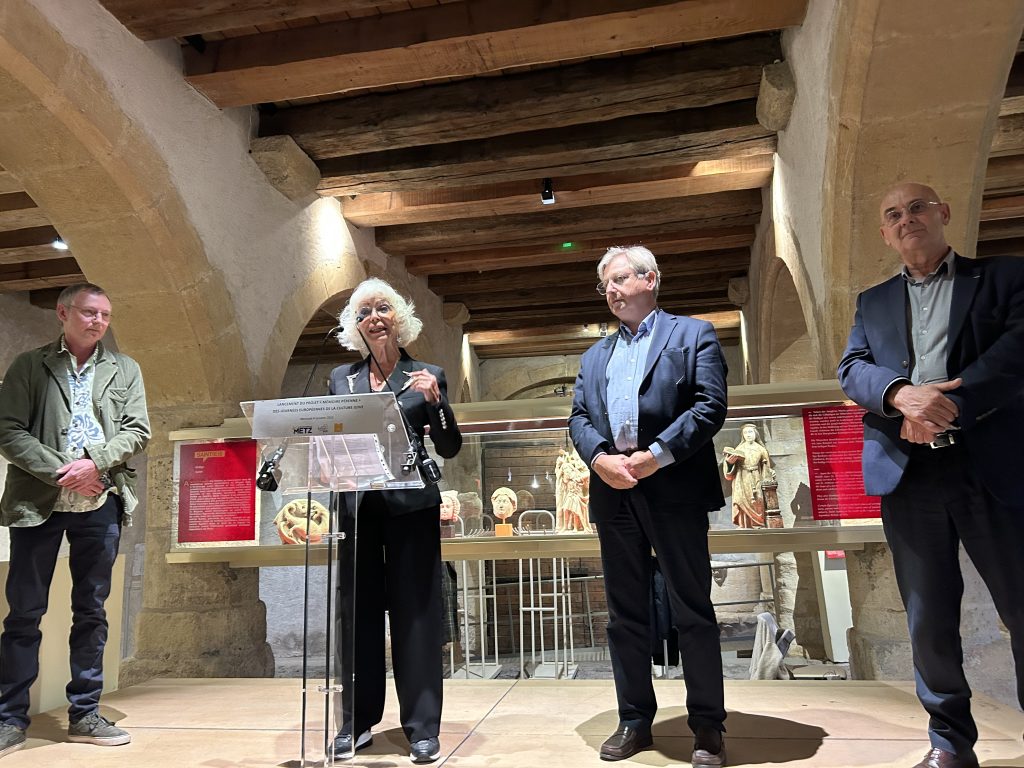
On 4 October, François Moyse visited the inauguration of an exhibition on Jewish life, to be fully reshaped in the museum of the Cour d’or in Metz, Eastern France (Lorraine).
Last Thursday 19 October, the AEPJ Routes Incubator came to an end, after four intense days of work. Participants had the opportunity to explore the two routes that have acted as hosts, the Polish Jewish Heritage Route and the Shtetl Routes, developed in cooperation with the Taube Foundation and Grodzka Gate. The programme has also offered different working sessions and workshops, which in this edition have been dedicated to the aspect of narrative development — a crucial theme in the development of the European Jewish Heritage Route as a whole.
On the last day of the programme, the team travelled from Lublin to the Death Camp in Sobibor, where AEPJ members visited the newly created museum as well as the memorial space.
Since Monday, the AEPJ routes managers continue to work on different key aspects of the development of the European Jewish Heritage Route through the Incubator.
Tuesday morning’s sessions were dedicated to a new key aspect — sustainability on the European Jewish Heritage Route. In this framework, two workshops have been developed, one led by Marc Francesch, Project manager of the project, in which AEPJ members have reflected together on the key values that our route promotes. Then, AEPJ member Anke Biedenkapp led a participatory session, where managers have established practical objectives to implement in the routes, as well as in AEPJ meetings related to sustainability. During the afternoon, the team headed to Lublin, with a stop first in Kazimierz Dolny, which constitutes part of the Shtetls route.
PARIS — October 11, 2023 marked the official opening of the “Salonika, Jerusalem of the Balkans” exhibition of the mahJ (Musée d’art et d’histoire du Judaïsme) in Paris. The exhibition takes a photographic look back at the presence of Jewish life in Salonika, also known as modern-day Thessaloniki, between 1870 and 1920.
At the beginning of the 20th century, Jews made up the majority of the population, making this economic capital of independent Greece the “Jerusalem of the Balkans” until the almost total deportation of the city’s Jews in 1943. The city was for a long time a Jewish city, where shopkeepers of all denominations closed on Saturdays and during Jewish holidays. The 150 works in the mahJ exhibition tell the story of Salonika from the second half of the 19th century to the end of the First World War.
WARSAW — Today, 16 October began the annual meeting of the European Routes of Jewish Heritage (ERJH) Route Managers in Warsaw, Poland. The programme, created and developed cooperatively between AEPJ, its scientific committee and our partners in Poland (Taube Foundation and Grodzka Gate), is focused in this edition on the narratives and the educational perspective of the European Jewish Heritage Route, certified by the Council of Europe.
Despite the complicated political circumstances in the Middle East that are close to our hearts, it was decided to go ahead with the programme, understanding that it is perhaps more relevant than ever to be united. After all, we perceive our network not as a mere collection of institutions coming together to work, but as a truly united community.
The second day of the 12th Annual Forum on Cultural Routes of the Council of Europe, held in Łódź, Poland, was dedicated to exploring the theme of “Social and Creative Dimensions of Cultural Heritage in a Post-Industrial Perspective” through a variety of sessions.
The first general session of the day focused on “Preserving and Revitalizing Post-Industrial Heritage.” During this session, the spotlight was on how the reuse, innovative design, and collaborative planning transformed abandoned factories and warehouses into vibrant cultural hubs, creative incubators, and community spaces.
One of the speakers in this session was François Moyse, President of AEPJ. He presented the AEPJ and discussed the relevance of the theme in the context of the Jewish heritage route. He highlighted significant examples and best practices in the field, both in terms of the diverse uses of heritage spaces and the bottom-up approach that involves local communities and institutions working together to showcase European Jewish heritage.
The XII Annual Forum of Cultural Routes of the Council of Europe, which is being held in Lodz, Poland, started yesterday under the theme: “Cultural Routes: Social and Creative Dimension of Cultural Heritage in a Post-Industrial Context.”
The 2023 Advisory Forum is organised by the Enlarged Partial Agreement on Cultural Routes of the Council of Europe (EPA) and the European Institute of Cultural Routes, in cooperation with the Ministry of Culture and National Heritage of the Republic of Poland. Participants from 40 EPA member states and representatives from 47 certified Cultural Routes are exploring “the role of cultural heritage in the construction of a peaceful and democratic society” within post-industrial societies and linking it with contemporary challenges to heritage posed by conflicts, natural disasters, and climate change.
Brussels, 3 September 2023 – This Sunday afternoon, the AEPJ (European Association for the Preservation and Promotion of Jewish Culture and Heritage) was proud to inaugurate the 24th edition of the European Days of Jewish Culture (EDJC), the annual festival of Jewish heritage and culture, from the Great Synagogue of Europe. This year, the festival is dedicated to the theme of “Memory,” — a profound exploration of the past that shapes our present and guides our future. It is a concept deeply embedded in the history and culture of Judaism, representing both personal recollections and collective commemorations of significant events. The festival provides a platform to explore the multifaceted dimensions of Memory and to reflect on the historical journey of the Jewish people.
